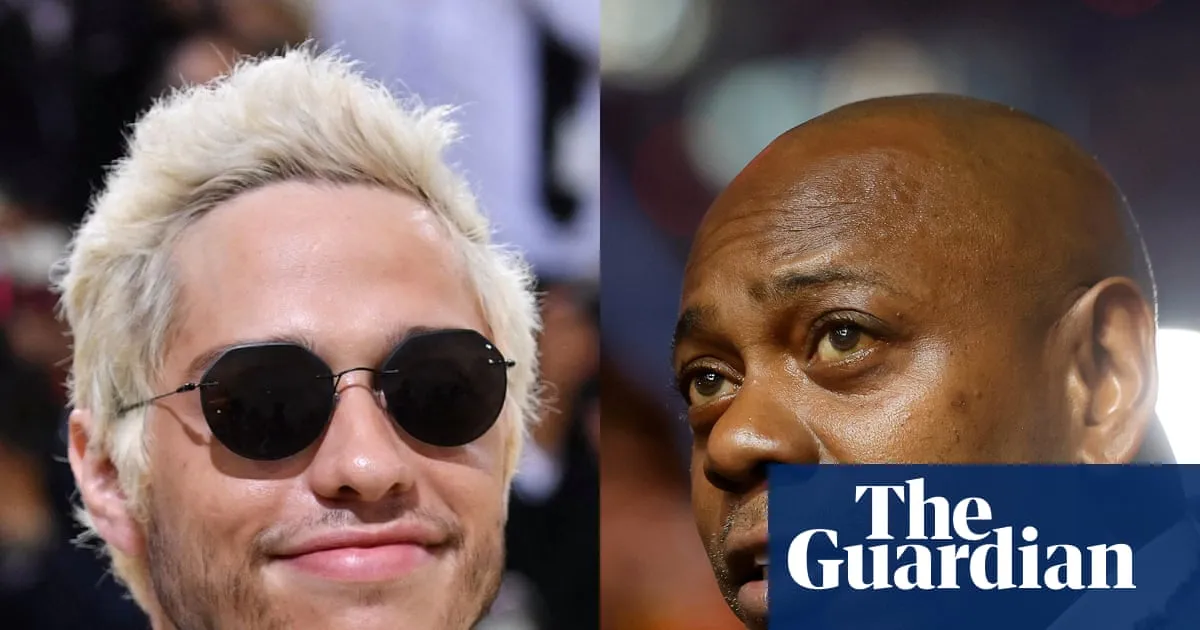
Billed as “the biggest comedy festival in the world”, the inaugural Riyadh Comedy Festival runs from September 26 to October 9, showcasing some of the most prominent names in US comedy. The event features a star-studded lineup that includes renowned comedians such as Dave Chappelle, Louis CK, Bill Burr, Kevin Hart, Whitney Cummings, Pete Davidson, Aziz Ansari, and Jo Koy. These performers are reportedly receiving their fees directly from the Saudi government, raising questions about the implications of their participation.
The festival is produced by Sela, a live events company backed by Saudi Arabia’s sovereign wealth fund, along with the kingdom’s General Entertainment Authority, chaired by Turki Alalshikh, a royal adviser facing allegations of human rights violations. The involvement of the US-based talent agency William Morris Endeavor (WME) and Bruce Hills, president of the Just For Laughs comedy festival in Montreal, adds further complexity to the event's organization.
Despite the excitement surrounding the festival, it has faced significant criticism from organizations like Human Rights Watch (HRW). The organization argues that the festival is a calculated attempt by the Saudi regime to whitewash its human rights abuses. HRW researcher Joey Shea emphasized, “This whitewashing comes amid significant increase in repression,” highlighting the ongoing crackdown on free speech that many comedians advocate for, yet remains denied to individuals in Saudi Arabia.
Some comedians have voiced their disapproval of their peers participating in the Riyadh Comedy Festival. Notably, Marc Maron criticized the festival, stating, “The same guy that’s gonna pay them is the same guy that paid that guy to bone-saw Jamal Khashoggi and put him in a fucking suitcase.” Similarly, comedian Stavros Halkias mentioned that he turned down the opportunity because he cannot accept money from Saudi Arabia, which he described as “spooky.”
Conversely, several comedians appearing at the festival have downplayed the criticisms. Comedian Jim Jefferies remarked on a podcast that while unfortunate events like the murder of a journalist have occurred, he doesn’t see it as a “hill to die on.” He argues that performing in Saudi Arabia serves a greater purpose by bringing “freedom-of-speech machines” to a repressed audience. Interestingly, Jefferies has since disappeared from the festival's lineup, with no explanation from his representatives.
Financial incentives appear to play a significant role in the decisions of these comedians. Tim Dillon candidly acknowledged in a podcast segment that the significant payment would lead him to overlook the kingdom's human rights record, stating, “So what, they have slaves?” Pete Davidson also addressed the criticism he faced regarding his participation, noting that for the right price, he could overlook his father’s death on 9/11.
Comedians considering participation in the Riyadh Comedy Festival may have had to agree to stringent content restrictions. A leaked contract proposed to comedian Atsuko Okatsuka forbade any material that could be seen as derogatory towards the Kingdom of Saudi Arabia or its leadership. This starkly contrasts with the principles of free speech that many of these comedians claim to champion.
Despite the emphasis on free speech by many of the festival's headliners, their participation raises profound questions about the ethical implications of performing under a regime known for its oppressive policies. Comedians like Dave Chappelle and Bill Burr have previously criticized authoritarian regimes, yet they now find themselves aligning with the very powers they condemned. This contradiction reveals a troubling shift in the landscape of comedy, where the freedom to speak is increasingly used to justify a lack of ethical responsibility.
As the inaugural Riyadh Comedy Festival unfolds, the conversation surrounding human rights, freedom of speech, and the moral obligations of entertainers continues to evolve. While the festival aims to showcase comedy on a grand scale, the underlying issues of complicity and ethical considerations cannot be overlooked.